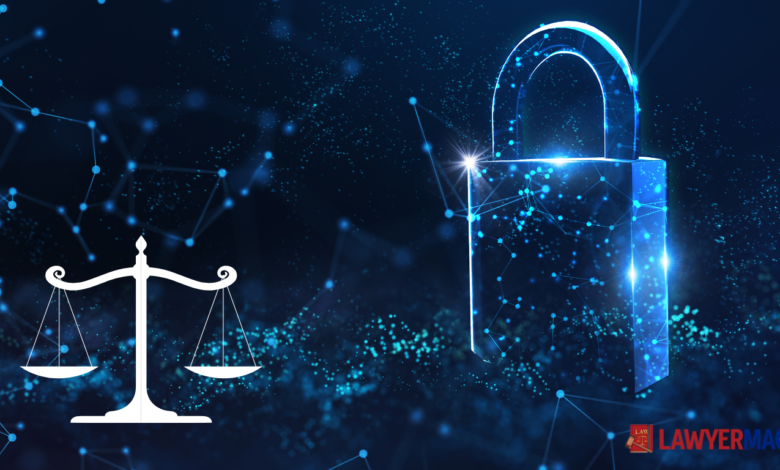Cybersecurity and Data Privacy:Legal Challenges in the New Digital Age 2023.

In today’s digital age, cybersecurity and data privacy are crucial issues that every individual and organization must consider. Cyber threats are more prevalent with the increasing use of technology and the internet. In this article, we will discuss the legal challenges in the digital age regarding cybersecurity and data privacy and provide insights into how to overcome them.
Importance of Cybersecurity and Data Privacy
The importance of cybersecurity and data protection cannot be overstated. Protecting sensitive information is vital for individuals and organizations alike.
Cyber threats and attacks can cause significant damage, including loss of valuable data, identity theft, financial loss, and reputational damage. Therefore, taking the necessary measures to ensure cybersecurity and data protection is crucial.
Cyber Threats and Attacks
Cyber threats and attacks can come in various forms, including viruses, malware, phishing attacks, and ransomware. These attacks can be devastating to individuals and organizations. Therefore, it is essential to take the necessary measures to prevent these attacks from happening.
This can include using security software, keeping software and systems up to date, and being vigilant for suspicious activity.
Cybersecurity and Data Privacy Regulations
Organizations must comply with cybersecurity and data privacy regulations, including the General Data Protection Regulation (GDPR) and the California Consumer Privacy Act (CCPA).
These regulations protect individuals’ privacy and ensure that organizations are accountable for the data they collect and process.
GDPR and CCPA
The General Data Protection Regulation (GDPR) is a regulation that aims to protect the privacy of individuals within the European Union (EU) and the European Economic Area (EEA). California
Consumer Privacy Act (CCPA) is a law that gives California residents the right to know what personal information is collected about them by businesses and how that information is used and shared. Compliance with these regulations is essential for organizations that handle personal data.
Cybersecurity Insurance
Cybersecurity insurance is a type of insurance that helps organizations protect against cyber threats and attacks. This insurance can help cover the costs associated with cybersecurity incidents, such as data breaches, cyber-attacks, and cyber extortion. Cybersecurity insurance can provide peace of mind and help organizations recover from cyber incidents.
Incident Response Planning
Incident response planning is a critical aspect of cybersecurity. It involves creating a plan to respond to cybersecurity incidents promptly. This plan should include identifying and containing the incident, assessing the damage, notifying the appropriate parties, and recovering from the incident. An incident response plan can help organizations minimize the damage caused by a cyber incident.
Cybersecurity and Data Privacy Compliance
Cybersecurity and data privacy compliance ensure organizations follow relevant regulations and standards. Compliance involves regularly monitoring and assessing an organization’s cybersecurity and data protection practices to ensure they meet regulatory requirements. Organizations must invest in compliance to avoid fines, penalties, and reputational damage.
Read More: Debunking Common Myths About Illegal Immigrants in UK
Ethical Considerations in Cybersecurity and Data Privacy
Ethical considerations are vital in cybersecurity and data protection. Organizations must ensure that they collect and process data ethically, respect individuals’ privacy, and use data for legitimate purposes. Failing to do so can result in significant reputational damage and legal consequences.
Cybersecurity and Data Privacy in the Workplace
Cybersecurity and data privacy are essential considerations in the workplace. Organizations must ensure that employees know the cybersecurity and data risks.
This can involve providing training and resources to employees to help them identify and prevent cyber threats. Employees should also be encouraged to report any suspicious activity promptly.
Best Practices for Cybersecurity and Data Privacy
To enhance cybersecurity and data privacy practices, individuals and organizations can follow some of the best practices outlined below:
- Regularly updating software and systems: Regularly updating software and systems can prevent vulnerabilities and reduce the risk of cyber-attacks.
- Using strong and unique passwords: Strong and unique passwords can prevent unauthorized access to accounts and sensitive information.
- Enabling two-factor authentication: Two-factor authentication adds an extra layer of security and can prevent unauthorized access to accounts.
- Encrypting sensitive data: Encrypting sensitive data can protect it from unauthorized access.
- Limiting access to data: Limiting access to data to only authorized personnel can prevent accidental or intentional data breaches.
Cybersecurity and Data Privacy Training and Awareness
Providing cybersecurity and data privacy training and awareness to employees is crucial in ensuring they know the risks and challenges associated with cybersecurity and data privacy. Regular exercise can help employees identify and prevent cyber threats, and awareness campaigns can raise awareness about the importance of data privacy.
Cybersecurity and Data Privacy Challenges in the Future
The digital age brings new cybersecurity and data privacy challenges. Some of these challenges include:
- The increasing use of artificial intelligence (AI): cybercriminals can use AI to develop sophisticated attacks that are difficult to detect.
- The growth of the Internet of Things (IoT): The increasing use of IoT devices can lead to new vulnerabilities and risks.
- The rise of cybercrime as a service: The availability of cybercrime allows cybercriminals to rent or buy tools and services to conduct attacks, making it easier for anyone to become a cybercriminal.
These challenges will require individuals and organizations to continually remain vigilant and adapt to new threats and risks.
Conclusion
In conclusion, cybersecurity and data privacy are critical issues in the digital age. Organizations must comply with relevant regulations and take necessary measures to prevent cyber threats and attacks. By following best practices and investing in training and awareness, individuals and organizations can enhance their cybersecurity and data privacy practices and reduce risks. The digital age will bring new challenges, and it is essential to remain vigilant and adapt to these changes to ensure the safety and security of sensitive information.











